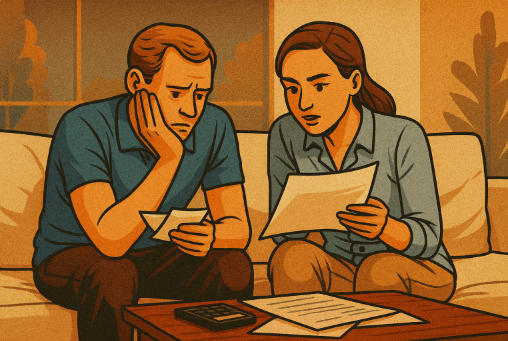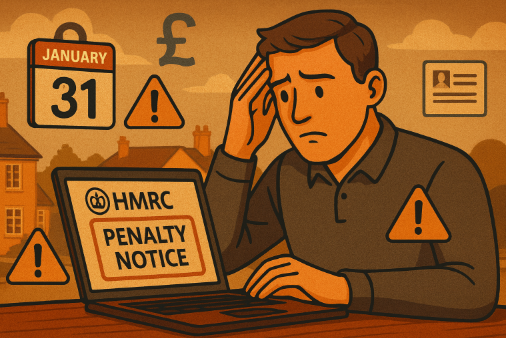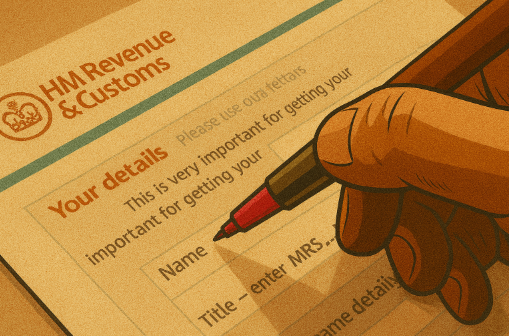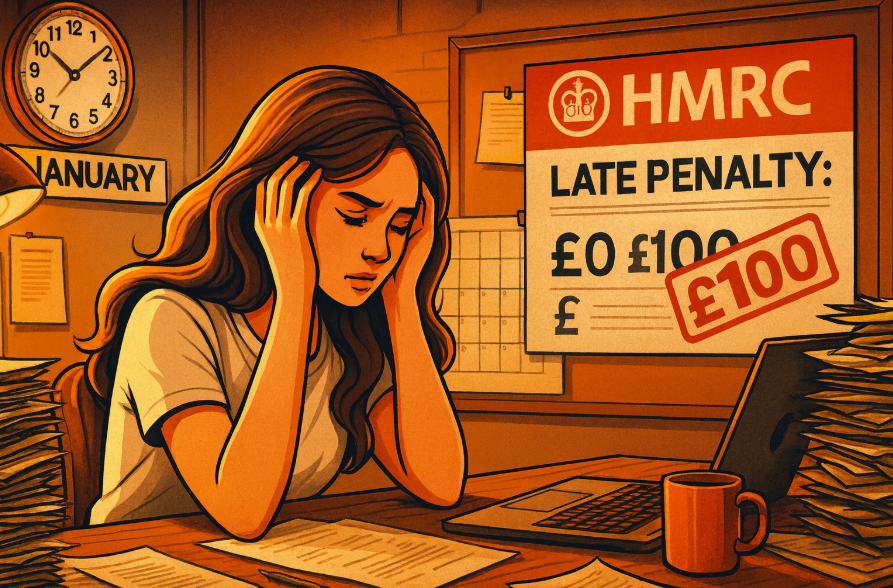HMRC to Fine UK Households £100 for Late Self Assessment Tax Returns Starting January 2025? From January 2025, HMRC will start issuing automatic £100 fines to UK households that miss their Self Assessment tax return deadlines. If you’re among the millions of taxpayers required to file, this change is a big deal. Whether you’re self-employed, earning from property, or simply managing multiple income streams, understanding these penalties will save you stress and money.
What is the HMRC £100 fine for late Self Assessment tax returns?
From January 2025, HMRC will issue a £100 penalty to UK households and individuals who fail to file their Self Assessment tax return on time. The deadline for online submissions remains 31 January 2025, and missing it—even by a single day—will automatically trigger this fine.
This rule applies to:
-
Freelancers and contractors
-
High earners with additional income streams
-
Anyone required to complete a tax return
“Filing on time means avoiding unnecessary penalties. Taxpayers should take action early to prevent fines.”
When is the Self Assessment tax return deadline in 2025?

The key deadline for filing online is midnight on 31 January 2025.
Here’s a quick timeline:
| Tax Year | Filing Deadline | Fine if Late |
|---|---|---|
| 6 April 2023 – 5 April 2024 | 31 October 2024 (paper return) | £100 if missed |
| 6 April 2023 – 5 April 2024 | 31 January 2025 (online return) | £100 if missed |
Missing these deadlines will result in automatic fines.
How much will UK households pay in HMRC penalties if they file late?
The initial fine is £100, but it can quickly escalate if you continue to delay.
-
1 day late: £100 fine
-
3 months late: £10 per day (up to £900)
-
6 months late: An extra £300 in fines (or 5% of the tax payable, whichever is higher)
-
12 months late: An additional £300 fine, or 5% of the tax payable, whichever is higher.
⚠️ That means a simple missed deadline could cost over £1,600 in fines by the end of the year.
Why is HMRC enforcing the £100 late filing fine in 2025?
HMRC says the penalty system encourages compliance and ensures the UK tax system runs smoothly. The fines act as a deterrent to late filing, which causes delays in processing taxes and issuing refunds.
“Many taxpayers underestimate how quickly HMRC penalties stack up. Filing on time is always cheaper than paying unnecessary fines.”
Why Is HMRC Introducing Stricter Penalties from January 2025?

HMRC claims these tougher penalties will:
-
Improve tax compliance across the UK.
-
Prevent late filings that delay the country’s tax revenue flow.
-
Encourage taxpayers to shift towards digital-first submissions.
Additionally, in an effort to update the tax system, the UK government is pushing for Making Tax Digital (MTD).
Who needs to file a Self Assessment tax return in the UK?
You need to file if you:
-
Earn more than £1,000 from self-employment
-
Receive over £2,500 in untaxed income (e.g., rental income)
-
Have savings or investment income
-
Earn more than £100,000 annually
-
Claim Child Benefit while earning over £50,000
-
Are a partner in a business partnership
You can utilise the HMRC online checker if you’re not sure.
What happens if you miss the HMRC Self Assessment deadline in 2025?
If you miss the deadline:
-
You’ll automatically receive a £100 fine
-
Interest may apply to unpaid tax
-
HMRC may take legal action if you fail to pay
💡 Tip: If you have a genuine reason (illness, technical issues, bereavement), you can appeal the fine.
How can UK households avoid the HMRC £100 fine in January 2025?
Here are some simple ways to stay penalty-free:
-
Register with HMRC early if it’s your first return
-
File well before 31 January 2025 to avoid last-minute stress
-
Keep financial records organised throughout the year
-
Set calendar reminders for deadlines
-
Use HMRC’s app or trusted accounting software
Can you appeal the HMRC late filing penalty in 2025?

What Are Valid Excuses HMRC Will Accept?
If you can demonstrate: HMRC may waive a fine.
-
Serious illness or hospital stay
-
Bereavement of a close family member
-
Technical glitches with HMRC’s online portal
-
Postal delays outside your control
HMRC will not usually accept excuses like “I forgot” or “My accountant was busy.”
How Do You Submit an Appeal?
You can appeal online via your Government Gateway account or by writing to HMRC. Supporting evidence is crucial for a successful appeal.
Conclusion: What does the HMRC £100 fine mean for UK households in 2025?
For UK households, the impending £100 charge from HMRC in January 2025 serves as a wake-up call. It is now mandatory to submit your self-assessment on time; it is no longer a choice. Staying ahead of deadlines is the safest course of action because of the harsher penalties, additional fees for delays, and the possibility of enforcement.
Invest in digital tools, prepare documents early, and if in doubt, seek help from a tax professional. Your wallet—and peace of mind—will thank you.
🔗 For more official details, visit HMRC’s Self Assessment guidance.
FAQs on HMRC £100 Fine for Late Self Assessment Tax Returns
When do HMRC fines start in 2025?
They start immediately after the 31 January 2025 deadline for online returns.
Can I pay my tax bill late without a fine?
No. Both late filing and late payment trigger separate fines and interest charges.
Is the £100 HMRC fine refundable if I appeal?
Yes, but only if HMRC accepts your reasonable excuse.
Do all UK households need to file a Self Assessment?
No. Only those with untaxed income or meeting HMRC’s criteria must file.
How do I contact HMRC about Self Assessment penalties?
You can call 0300 200 3310 or use your online HMRC account.
I’m Laura Wilson, a passionate blogger and content creator with a deep interest in business, finance, and entrepreneurship. I’ve had the opportunity to write for several premium blogs, sharing insights & practical advice for individuals & small businesses. I’m the founder and publisher of ukbusinessmag.co.uk, where I focus on creating valuable, easy-to-understand content to help UK startups & SMEs grow.



